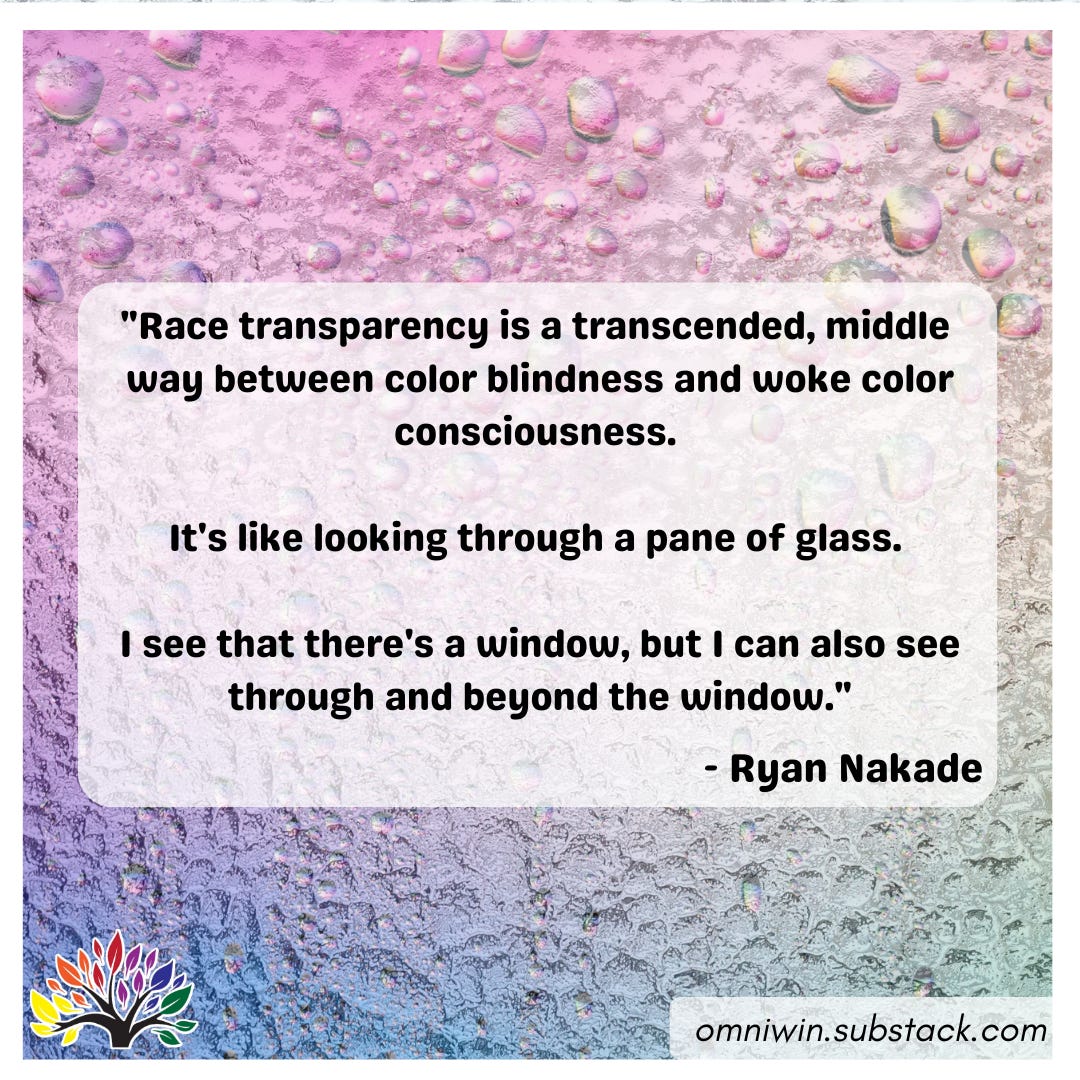Meta-Ideological Politics to Confront Extremism with Ryan Nakade
“You look for openings in their ideology to plant seeds of deradicalization.”
It's time to upgrade our democracy. If you're fed up with the status quo and want to catalyze political and societal change, you're in the right place.
The Omni-Win Project Podcast is ready to shed light on the many opportunities we have to revolutionize our political culture.
We’re all in this together, so join us in co-creating the future of democracy.
Episode Three: “Why Ideology Is Not The Enemy” with Ryan Nakade
Listen here:
Our relationships are in jeopardy due to our divisive political culture. In part one of this two-part discussion, Duncan talks with his intellectual doppelgänger, Ryan Nakade, about ideology and how it impacts our connection to each other. You'll learn about extremism, cultural humility, and how modern society has demonized ideology.
Extreme views and toxic polarization in society and politics make connecting with those with differing opinions harder than ever before. But developing an advanced understanding of other people's perspectives and ideologies can build mutual respect. Are you ready to delve into what ideology really is?
Highlights in this episode:
Ryan explains what ideology truly is and describes meta-ideology.
Learn about the worrying challenges we face within our political culture.
Understand the importance of personal ideological awareness.
Discover illuminating questions you can ask someone about their ideology.
Ryan talks about how he connects with people who hold extremist beliefs.
Recognize how understanding someone's point of view can cultivate your relationships.
Learn how core values and boundary judgments shape our perceptions.
Ryan talks about deradicalizing extremists; his method can level up your relationships.
Discover argument strategies like "straw man" and "steel man" and how to debate effectively.
There's a distinction between finding common ground and building higher ground. So this is a way of building higher ground together. If we don't have any common ground to stand on, I will try my best to build higher ground with you and see where the conversation can go from there.
That also prevents me from being so allergic I can't stand a conversation with them or read any of the stuff. I'm translating into other frameworks I've studied to gain a higher perspective or a more nuanced, complex perspective instead of getting into the wacky details.
Episode Four: "Combating Polarization and Extremism with Meta-Ideological Politics" with Ryan Nakade
Listen here:
Did you know that politicians benefit from our divisive system and actively encourage polarization? Duncan and Ryan talk about eye=opening ways to find higher ground in a deeply polarized world to develop omni-win solutions to our problems. You’ll also learn about Ryan’s unique “titanium man” approach. Prepare to level up your debates and understanding of new perspectives!
You’ll also hear a fascinating discussion on how changes in democratic elections could take an omni-win approach. Ryan tells us how politicians could make a massive difference in their community, regardless of the vote outcome. It's time to push politicians to be better.
Highlights in this episode:
Ryan describes his unique “titanium man” approach to mediation and debate.
Know when to take the “steel man” or “titanium man” approach in an argument.
Duncan talks about “you statements” vs. “I statements.”
Ryan demonstrates how to effectively approach Diversity, Equity, and Inclusion (DEI) training to supplement participants’ ideas rather than supplant them.
Understand why labels can be crude identity categories and when using them is okay.
Discover why politicians aim to polarize and incite outrage, and what they should be doing instead.
Learn why the political debate model is well past its prime.
I'm so pessimistic. I think all of the incentive structures and technological developments and features are working against integration or harmonization.
It's challenging for me to even think of what it getting better would even look like, just because I just do not believe it will get better at scale. It’s a pretty pessimistic answer, but that is know where I'm at right now.
About this week’s guest:
Ryan Nakade is the co-founder of the podcast Meta-Ideological Politics, catalyzing transformative civic engagement. He leads workshops teaching communication and dialogue skills, emphasizing political depolarization and conflict prevention. He also works with violent extremists, employing unique deradicalization techniques. Ryan teaches diversity, equity, and inclusion (DEI) workshops with a complexity theory perspective.
Connect with Ryan Nakade:
Meta-Ideological Politics Podcast on Apple, Podcast on YouTube
Resources from these episodes:
What’s coming next?
Next week, on 26th July, you’ll be able to listen to episode five with Raye Rawls.
Raye talks about asking our opponents questions of genuine curiosity, how we can work together despite our differences, and the importance of understanding other perspectives. Full of unique insights, it’s one you don’t want to miss. Stay tuned!
Here’s a sneak peek!
“When they started integrating pools, they said, "Oh, no, we're not having black kids in our swimming pool. We're closing the pool down." And no one had a conversation about, well, the white kids, where are they gonna swim?
When we get caught up in our emotions, values, fears, and pain, sometimes we don't think things through. I mean, no one thought about if we fill the pool with cement, white kids don't wanna swim in cement either.”
If you haven’t already, subscribe to the Omni-Win Project Podcast on your preferred platform.
Check out the new Omni-Win Project website and follow me on other platforms:





